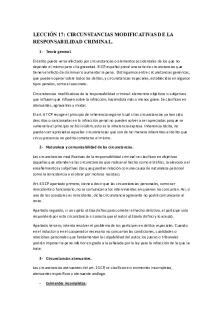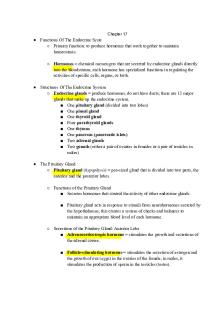Lec 17 Corn Poor W10 - Lecture notes 17 PDF

| Title | Lec 17 Corn Poor W10 - Lecture notes 17 |
|---|---|
| Author | Ariella Joffe |
| Course | History of Britain: Making of Modern Britain, 1715 to 1867 |
| Institution | University of California Los Angeles |
| Pages | 1 |
| File Size | 62.5 KB |
| File Type | |
| Total Downloads | 107 |
| Total Views | 133 |
Summary
lecture notes...
Description
Lecture 17 Corn Laws, Poor Laws & Factory Reform I.
THE “CORN” LAWS 1815-1846 A. The first CORN LAW, 1815 (see TABLE 1) 1. Impact of the FRENCH WARS on agriculture 2. Airm of the 1815 law B. liberal policy of Tory Governments 1822-1828 1. Sliding Scale established c. 1822 (see Table 2) 2. Sliding scale liberalized, c. 1818 (see Table 3) C. Argument for Free Trade: Richard Cobden and John Bright 1. CORN PRICES AND WAGES demands of workmen: CHEAP BREAD Ricardians: WAGES adjust to FALLING GRAIN PRICES Interest of manufacturers: LOWER WAGES 2. Farmers become more EFFICIENT , creates more not less work 3. Promotes international PEACE D. Anti-Corn Law League, 1842-1846 1. the machinery of pressure politics 2. PROPOGANDA aims 3. SUCCESS: Robert Peel repeals corn law in wake of Irish famine
II.
POOR LAWS A. The Malthusian Critique 1. Independence of Workmen 2. Collusion of Farmers in Vestry meetings : freer labor market = rise in wages B. Middle Class Opinion: PRESSURE ON POOR RATES, 1815-32 C. Chadwick’s “NEW POOR LAW” 1834-36 1. creation of free labor market a la Malthus (end to settlement laws, outdoor relief etc) 2. WORKHOUSE TEST : new conditions of receipt of relief 3. “LESS ELIGIBIULITY” : condition in the workhouse 4. unworkable in practice; led to founding of the C.O.S., 1860. Cont’d O.R. in North D. Structure 1. Poor Law “Unions”: regional and centralized administration 2. Boards of Guardians with visitation powers for oversight purposes. 3. Example of Radical Utilitarian (Benthamite) principles...
Similar Free PDFs

LecciÓn 17 - Lecture notes 17
- 6 Pages

Chapter 17 - Lecture notes 17
- 15 Pages

Chapter 17 - Lecture notes 17
- 7 Pages

LEC17 - Lecture notes 17
- 28 Pages

CH17 - Lecture notes 17
- 17 Pages

L18 - Lecture notes 17
- 2 Pages

Tulips - Lecture notes 17
- 3 Pages

17ATOC - Lecture notes 17
- 4 Pages

Persuasion - Lecture notes 17
- 2 Pages

Lecture Notes 17
- 2 Pages
Popular Institutions
- Tinajero National High School - Annex
- Politeknik Caltex Riau
- Yokohama City University
- SGT University
- University of Al-Qadisiyah
- Divine Word College of Vigan
- Techniek College Rotterdam
- Universidade de Santiago
- Universiti Teknologi MARA Cawangan Johor Kampus Pasir Gudang
- Poltekkes Kemenkes Yogyakarta
- Baguio City National High School
- Colegio san marcos
- preparatoria uno
- Centro de Bachillerato Tecnológico Industrial y de Servicios No. 107
- Dalian Maritime University
- Quang Trung Secondary School
- Colegio Tecnológico en Informática
- Corporación Regional de Educación Superior
- Grupo CEDVA
- Dar Al Uloom University
- Centro de Estudios Preuniversitarios de la Universidad Nacional de Ingeniería
- 上智大学
- Aakash International School, Nuna Majara
- San Felipe Neri Catholic School
- Kang Chiao International School - New Taipei City
- Misamis Occidental National High School
- Institución Educativa Escuela Normal Juan Ladrilleros
- Kolehiyo ng Pantukan
- Batanes State College
- Instituto Continental
- Sekolah Menengah Kejuruan Kesehatan Kaltara (Tarakan)
- Colegio de La Inmaculada Concepcion - Cebu





